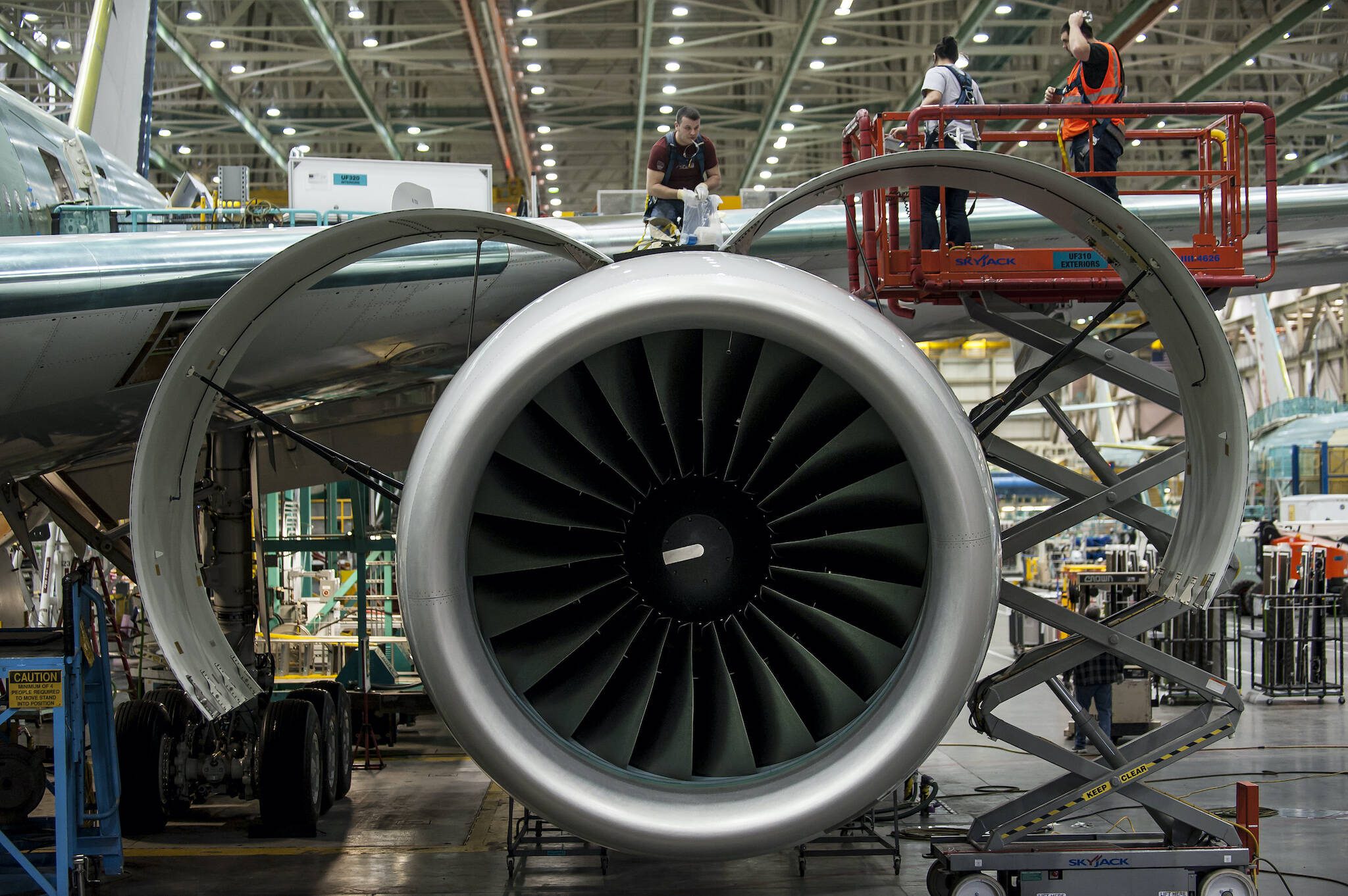EVERETT — Boeing will cease production of its 767 Freighter in 2027, marking the end of the line for its workhorse twin-engine, wide-body airplane built in Everett, Boeing CEO Kelly Ortberg announced Friday.
In a note to employees, Ortberg said the troubled aerospace giant will cut its global workforce by 10% “over the coming months” and delay delivery of its 777X airplane until 2026. The 777X program is also built in Everett.
“The challenges we have faced in development, as well as from the flight test pause and ongoing work stoppage, will delay our program timeline,” Ortberg wrote. “We have notified customers that we now expect first delivery in 2026.”
Production of the KC-46A tanker, also built in Everett, will continue, Ortberg said.
Boeing will fill its remaining orders for 29 freighters before concluding production in 2027. Boeing’s database lists 17 unfilled orders for UPS and 12 for FedEx.
Trevor Knightley, an electrical installer, has worked on both the 767 and KC-46A tanker in Everett for nearly seven years.
“It was something leadership had talked to us about, you know, eight months to a year ago, there was a potential that down the road, we might only be producing 777 freighters,” Knightley said Friday. “They’re more economical, they can carry out a larger load capacity, those types of things.”
Knightley said many of the engineers who work on the 767 also work on the KC-46A.
“I love that airplane,” he said.
It was only in May that Congress granted Boeing a lifeline on its 767 planes. Under new carbon emissions standards, Boeing was already looking at ending production of the 767 freighter in 2027.
As part of the FAA Reauthorization Act passed by Congress and signed into law in May by President Joe Biden, the 767 freighter received a five-year exemption from the new emissions standards.
The expected layoffs, which would equal about 17,000 jobs from its overall workforce of 170,000 employees, will include executives, managers and employees, the CEO said.
“We know these decisions will cause difficulty for you, your families and our team,” Ortberg said, “and I sincerely wish we could avoid taking them. However, the state of our business and our future recovery require tough actions.”
The moves announced Friday come as a monthlong strike by Boeing’s Machinist union continues. Members of the International Association of Machinists and Aerospace Workers have been on strike since Sept. 13 for increased wages and improved benefits.
Ratings agency S&P estimates the strike is costing Boeing more than $1 billion per month.
Boeing reported a $1.4 billion loss in the second quarter this year, but expressed optimism in July that the company would reverse course under the leadership of the new CEO.
On Sept. 17, Boeing instituted a pay freeze and ordered temporary furloughs for thousands of U.S.-based workers.
This week, Boeing withdrew a contract offer that would have given striking workers 30% raises over four years.
Boeing employee Brent Seman questioned the timing of the job loss announcement.
“This seems like it was in the cards already,” Seman said Friday.
As of May, Boeing had delivered more than 1,300 of the 767 airplanes, including 100 freighters, since its certification in 1982.
Boeing stopped making the passenger version of the 767 jet in 2014. The company said it currently produces three 767 planes per month.
Michael Henneke: 425-339-3431; michael.henneke@heraldnet.com; X: @ihenpecked.
Will Geschke: 425-339-3443; william.geschke@heraldnet.com; X: @willgeschke.
Talk to us
> Give us your news tips.
> Send us a letter to the editor.
> More Herald contact information.

























